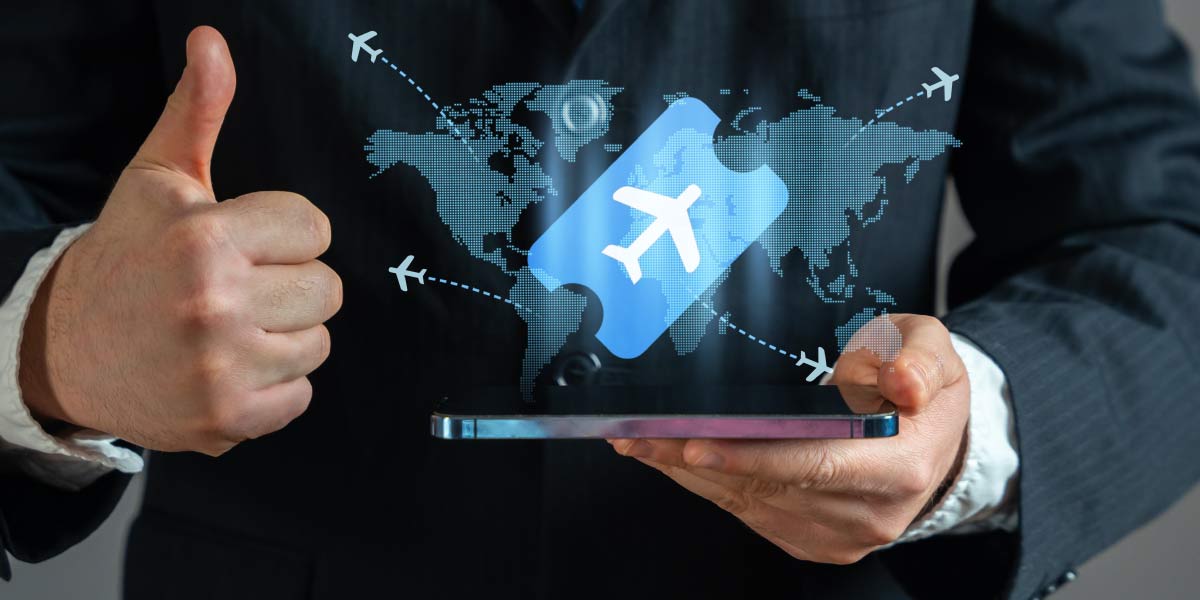About This Vlog
In an age where every minute is precious and being globally connected is important to success, the ability to make travel a seamless part of your workday is a game-changer.
Thoughtful business travel planning helps you eliminate missed connections, unexpected costs, and frantic situations the day before or the day of departure. You arrive organized, well-rested, and ready for business collaboration or closure.
Why Does Business Travel Planning Matter?
The importance of business travel planning is not only limited to booking a flight and a hotel; it is a process with strategic impacts on your organization’s productivity and reputation. With planned travel, there is less uncertainty, stress, and time wasted.
A travel organization allows you to focus on your core mission of growing relationships and business opportunities.
10 Tips For Mastering Business Travel Planning
1. Start Early And Define Clear Objectives
Begin your business travel planning well in advance of your travel date. Clarity from the start sets the tone for the entire journey.
Set the Purpose:
- Identify whether the trip is for a client meeting, conference, or team retreat.
- List specific goals, such as networking, negotiations, or market research.
Schedule Strategically:
- Block out time on your calendar for each planned meeting or event.
- Prioritize sessions that directly align with your objectives.
Book in Advance:
- Secure flights, hotels, and transportation early to lock in better rates.
- Allow extra time for potential delays or rescheduling.
For effective business travel planning, starting early is non-negotiable.
2. Build A Detailed Business Travel Planning Checklist
A comprehensive checklist ensures nothing is overlooked during your business travel planning.
Documentation and Visas:
- Verify passport validity and apply for any necessary visas.
- Prepare and organize travel documents and keep digital copies secure.
Itinerary Essentials:
- List flight details, hotel reservations, meeting schedules, and local transport.
- Include important contact numbers such as hotel reception and emergency services.
Plan for Contingencies:
- Outline backup plans for delays, cancellations, or unexpected changes.
- Prepare emergency contacts and quick-access information for unforeseen issues.
A well-prepared business travel planning checklist keeps your trip on track and stress-free.
3. Leverage Modern Technology For Efficiency
Embrace digital tools to streamline your business travel planning and keep everything organized.
Utilize Travel Apps:
- Use itinerary management apps to consolidate your travel details.
- Track expenses with digital tools that allow real-time updates.
Cloud Collaboration:
- Share travel details with your team via cloud-based platforms.
- Enable real-time notifications for schedule updates or delays.
Stay Connected:
- Ensure you have the necessary chargers, adapters, and backup devices.
- Save important documents on your mobile device or in the cloud storage.
For those looking to master the travel planning business, technology is your best friend.
4. Budget Strategically And Track Every Expense
A clearly defined budget prevents overspending and maximizes the return on your travel investment.
Outline All Costs:
- List expenses, including flights, accommodations, meals, and local travel.
- Research average costs at your destination to create realistic estimates.
Use Corporate Payment Tools:
- Utilize corporate credit cards with built-in expense tracking.
- Set pre-approved spending limits to manage costs effectively.
Monitor and Adjust:
- Update your expense log during the trip to keep track of spending.
- Compare actual expenses with your budget to learn for future trips.
Having a well-formulated business travel plan ensures that you are financially disciplined.
5. Prioritize Health And Well-Being
It is required to ensure physical and mental health for optimal performance during activity periods.
Schedule Breaks:
- Put in downtime between conferences to unwind and recharge.
- Plan regular short breaks into your schedule to avoid burnout.
Choose Healthy Alternatives
- Choose accommodations that have exercise facilities and provide healthy meals.
- Bring healthy snacks along and keep yourself hydrated during travel.
Manage Time Zones:
- Adjust your sleeping pattern in advance to combat jet lag.
- Schedule your meetings based on your destination’s local time.
Prioritize travel planning for business that suits your health and productivity.
6. Adaptability And Unforeseen Events Strategy
Even the best-laid plans can face unforeseen items; include flexibility in your business travel planning.
Provide Buffer Time:
- Insert extra slots between appointment times to cover contingencies for overruns.
- Schedule layovers with a buffer to allow for unexpected complications.
Book Flexible Options:
- Select changeable or refundable bookings wherever possible.
- Recognize other routes or nearby shelters to manage potential emergencies.
Stay Informed:
- Check weather reports and travel warnings periodically.
- Utilize programs that offer delay predictions or real-time notifications.
Using an adaptive business travel planning approach keeps you in control, regardless of whatever unexpectedness arises.
7. Leverage Loyalty Programs To Enjoy More Benefits
Loyalty programs will greatly augment your travel experience by offering rewards that simplify your travel.
Enrollment in Programs:
- Enroll in hotel and airline loyalty programs to earn points.
- Monitor rewards and trade them for upgrades or discounts.
Negotiate Employee Benefits:
- Work with travel vendors to obtain corporate rates and other perks.
- Max out your loyalty levels to access special lounges and personalized services.
Maximize Benefits:
- Ask for upgrades when possible, especially on long flights.
- Utilize partnerships to add value to your travel experience.
A well-structured luxury travel business plan has the potential to transform these benefits into considerable enhancements for your journeys.
8. Provide Safety And Compliance At Every Step
Safety must be the top priority in every voyage. A good strategy protects people and implements organizational rules.
Analyze Regional Security:
- Be aware of travel advisories and local laws in your destination.
- Understand cultural practices to prevent misunderstanding.
Get Comprehensive Insurance:
- Buy travel insurance that includes medical emergency and trip cancellation coverage.
- Keep physical and electronic records of your insurance policies.
Follow Company Protocols:
- Follow your company’s travel procedures and regulatory compliance guidelines.
- Use specialized programs to receive automatic notice and information about safety.
Strict procedures must be followed to ensure that a secure and hassle-free journey is provided during every trip.
9. Communicate Effectively With All Stakeholders
Good and regular communication is essential in providing a smooth journey experience.
Share Detailed Itineraries:
- Inform your travel schedule to colleagues, clients, and relatives.
- Utilize collaborative tools to modify your schedule in real time.
Set Expectations:
- Inform stakeholders immediately of any schedule changes.
- Arrange regular check-ins during your trip to maintain alignment.
Document Communication:
- Keep records of updates, changes, and confirmations.
- Summarize post-trip feedback to refine future communications.
Transparent dialogue is a cornerstone of effective business travel planning.
10. Review And Optimize After Each Trip
Continuous improvement is essential. Reflecting on your travel experience helps you optimize future journeys.
Conduct Post-Trip Reviews:
- Hold debrief sessions with team members to discuss what went well and what didn’t.
- Gather feedback on every aspect of your travel experience.
Analyze Expense Reports:
- Compare your actual expenses against your budget.
- Find ways to cut expenses or increase efficiency.
Refine Your Processes:
- Update your travel planning procedures based on lessons learned.
- Incorporate new tools and best practices for the next trip.


